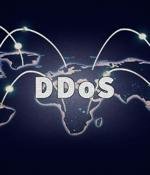Security News

Named "Torrents of Truth," the initiative is similar to "Call Russia," a project to help break through Russian propaganda and open people's eyes to what's happening in Ukraine. The initiative creates torrents that contain a text file with a list of credible news sources that Russians can trust and instructions on downloading and installing a VPN to secure anonymity from ISPs.

A team of Ukrainian cyber-activists has thought of a simple yet potentially effective way to spread uncensored information in Russia: bundling torrents with text and video files pretending to include installation instructions. The initiative creates torrents that contain a text file with a list of credible news sources that Russians can trust and instructions on downloading and installing a VPN to secure anonymity from ISPs.

Microsoft on Friday disclosed a potential connection between the Raspberry Robin USB-based worm and an infamous Russian cybercrime group tracked as Evil Corp. The tech giant said it observed the FakeUpdates malware being delivered via existing Raspberry Robin infections on July 26, 2022. Raspberry Robin, also called QNAP Worm, is known to spread from a compromised system via infected USB devices containing malicious a.LNK files to other devices in the target network.

Russian threat actors capitalized on the ongoing conflict against Ukraine to distribute Android malware camouflaged as an app for pro-Ukrainian hacktivists to launch distributed denial-of-service attacks against Russian sites. "The apps were not distributed through the Google Play Store, but hosted on a domain controlled by the actor and disseminated via links on third party messaging services."

The Russian state-sponsored hacking collective known as APT29 has been attributed to a new phishing campaign that takes advantage of legitimate cloud services like Google Drive and Dropbox to deliver malicious payloads on compromised systems. What's changed in the newer iterations is the use of cloud services like Dropbox and Google Drive to conceal their actions and retrieve additional malware into target environments.

The Council of the European Union said today that Russian hackers and hacker groups increasingly attacking "Essential" organizations worldwide could lead to spillover risks and potential escalation. "This increase in malicious cyber activities, in the context of the war against Ukraine, creates unacceptable risks of spillover effects, misinterpretation and possible escalation," the High Representative on behalf of the EU said Tuesday.

Google's Threat Analysis Group, whose primary goal is to defend Google users from state-sponsored attacks, said today that Russian-backed threat groups are still focusing their attacks on Ukrainian organizations. In a report regarding recent cyber activity in Eastern Europe, Google TAG security engineer Billy Leonard revealed that hackers part of the Turla Russian APT group have also been spotted deploying their first Android malware.

State-backed hackers part of Russia's Federation Foreign Intelligence Service have started using Google Drive legitimate cloud storage service to evade detection. "We have discovered that their two most recent campaigns leveraged Google Drive cloud storage services for the first time," Unit 42 analysts who spotted the new trend said.

Norway's National Security Authority published a statement yesterday warning that some of the country's most important websites and online services are being rendered inaccessible due to distributed denial of service attacks. DDoS attacks are a special type of cyberattack that causes internet servers to be overwhelmed by many requests and garbage traffic, rendering the hosted sites and services inaccessible for legitimate visitors and users.

The Computer Emergency Response Team of Ukraine has cautioned of a new set of spear-phishing attacks exploiting the "Follina" flaw in the Windows operating system to deploy password-stealing malware. Attributing the intrusions to a Russian nation-state group tracked as APT28, the agency said the attacks commence with a lure document titled "Nuclear Terrorism A Very Real Threat.rtf" that, when opened, exploits the recently disclosed vulnerability to download and execute a malware called CredoMap.